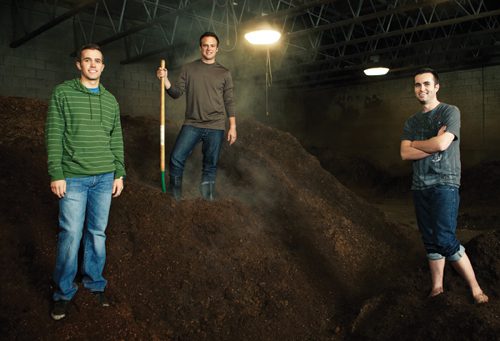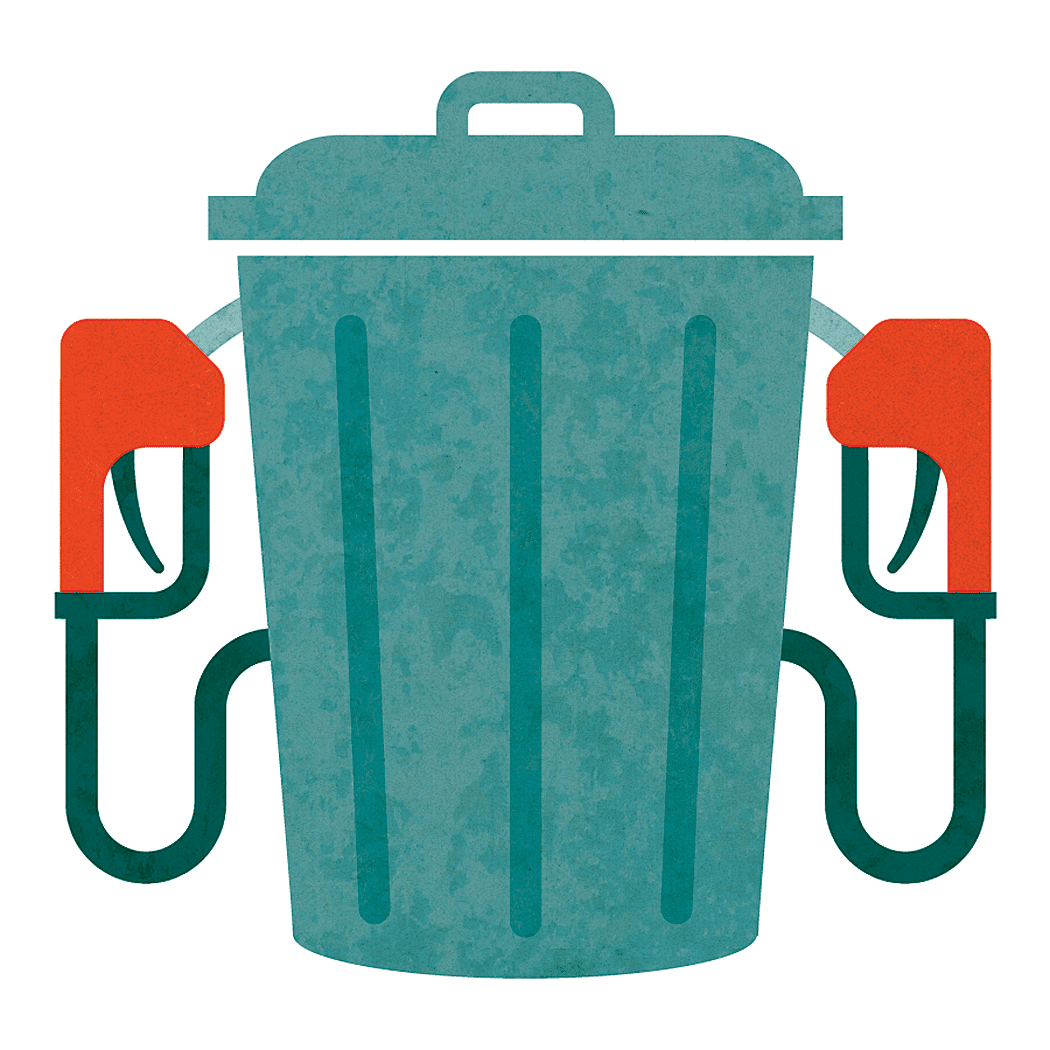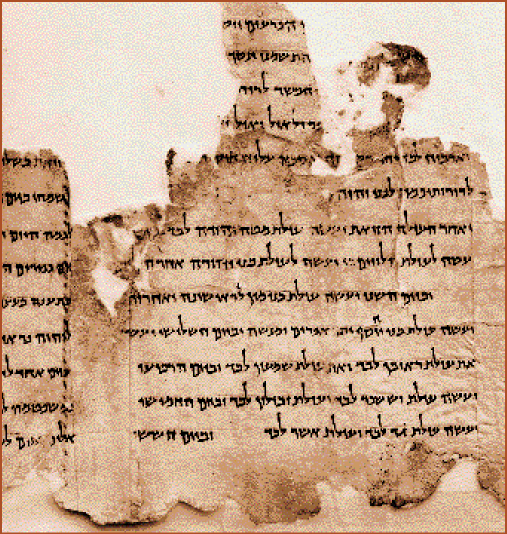A student trio is turning trash into treasure.
Yes, you can start out dumpster diving and end up CEO of a company with more than $1 million in sales. Just ask business and English major Daniel R. Blake (’12), founder of EcoScraps, a company that turns food waste into dirt.
The idea came as Blake celebrated the end of finals in 2009 at a Provo restaurant. He was struck by how much food is dumped. “I wonder[ed] if you couldn’t reorganize the waste stream to make money off it,” says Blake. He and his roommates began exploring restaurant and grocery dumpsters after hours. “Most of them were really gross,” says Blake, whose first dive in tennis shoes taught him to wear rubber boots and gloves and to look before you leap.

Making the environment better while making money, (left to right) Craig Martineau, Brandon Sargent, and Daniel Blake made the cover of Inc.
Their food-waste findings went to Blake’s “lab”: his apartment kitchen full of blenders containing things like “a super gross, puke-green mixture.” After composting these blends in a nearby empty lot, Blake approached BYU soil scientist Bruce L. Webb (BS ’72), who regularly tests soils and composts, with his results. “We do smelly stuff,” Webb says. “This was some of the worst.” The Chinese food compost killed plants within 12 hours. “You could literally watch the plant wilt and die,” Blake says.
Eventually Blake did create a successful soil recipe using fruit and veggie compost. Enlisting friends Brandon D. Sargent (’13) and Craig L. Martineau (’13), Blake moved facilities to a graffiti-decorated abandoned lodge; replaced blenders with mulchers; and traded dumpster diving for delivery agreements with waste haulers, local grocers, and retailers like Costco. Winnings from business competitions and Blake’s life savings funded the company as it first sold compost and potting soil throughout Utah County. “From there it’s all just kind of exploded,” says Sargent.
EcoScraps’ raw materials bring prof-its instead of expenses: stores pay EcoScraps to take their food waste. EcoScraps processes about 20 tons of waste a day, then sells its product back through the same stores. With its leveraged business model, the company placed second in BYU’s Social Venture Competition, was featured by Inc. and Forbes, and grew to open operating facilities in Salt Lake City and Tempe, Ariz.
“In America we throw away 30 million tons of food waste each year; that’s enough to fill the BYU football stadium once every three days,” says Blake. Since composting food doesn’t emit methane the way rotting does, EcoScraps soil reduces greenhouse gas in landfills.
To launch EcoScraps, Blake, Martineau, and Sargent had to defer school or drop to part-time status; however, each plans to complete his BYU education. “The more time I spent away from school, the more I realized there’s a whole lot that I still don’t know,” Blake told Forbes. “My classes became way more relevant.” Help from BYU faculty, he adds, was invaluable. “We were a little skeptical of them,” admits Webb. “But, dang it, I wish I’d invested right off the bat.”
The EcoScraps team hopes to expand with eight more facilities in the next 12 months—quite a feat for a trio of undergrads. But Blake believes anyone can start something successful, even if it’s by doing “something small like waiting until after hours and jumping into a dumpster.”









